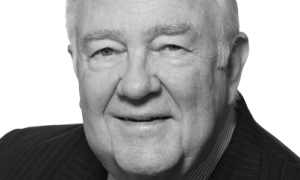When Ronald Reagan became president in January 1981, our nation faced unprecedented challenges. We were in the midst of the worst economic crisis since the Great Depression, marked by high unemployment, soaring inflation, enormous interest rates and a serious energy shortage. Our defense capability had deteriorated, and we were in a highly vulnerable position as the Soviet Union expanded its aggression worldwide. Many pundits proclaimed that our best days were behind us, that capitalism had peaked, and socialism was the wave of the future.
In eight years, Reagan provided the leadership that culminated in a remarkable record of accomplishment. He initiated a series of policies that led to the longest period of peacetime economic growth in our history. He rebuilt our national defense capability, assured the success of the all-volunteer force, and provided the finest military forces our country had ever seen. At the same time, he restored our position of world leadership and initiated a crusade for freedom that offered hope to captive nations and oppressed peoples. Finally, by personal demeanor and encouraging communication, he revived the spirit of the American people.
Reagan was a man of contrasting attributes. He was self confident without being arrogant. He portrayed a genuine humility without timidity or weakness. He used his quick wit and legendary sense of humor to illustrate a point, to diffuse tension, to counter an opponent, or often, merely to entertain. Friends and strangers alike treasured the opportunity to be with him, hear his views or listen to his well-told stories.
Much of his strength as a leader came from his vision. He understood the principles of America's founding, our history and the basic philosophy of liberty, limited government and free enterprise. These values became the basis for dealing with such problems as economic recovery, welfare reform, tax policy and the energy shortage.
His vision also led to long-range innovations. Perhaps the most important was his concept of a Strategic Defense Initiative, including a missile defense that would protect nations from nuclear attack, rather than merely retaliating after such an attack had occurred.
As with any period, Ronald Reagan's two terms included disappointments, mistakes within his administration and the inability to achieve all that he wished to accomplish. However, most historians rate his two terms as a remarkable period of success and hold him up as the example against which subsequent presidents are measured. He stands today as one of the greatest presidents in U.S. history.
Edwin Meese III is the Ronald Reagan Distinguished Fellow in Public Policy and Chairman of the Center for Legal and Judicial Studies at The Heritage Foundation.
First appeared in USA Today



